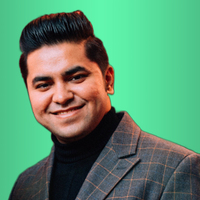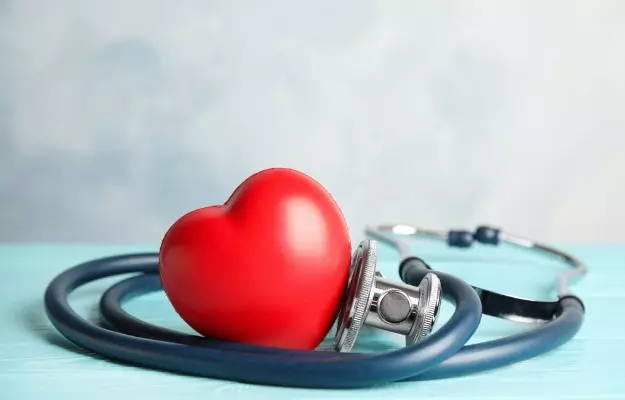When the upper chamber of the heart starts beating fast, this condition is called atrial flutter. Because of this, the heart beats fast, but this beat usually remains regular. Symptoms of atrial flutter can include shortness of breath, fainting, confusion, and fatigue. Its cause is not completely clear, but it can be due to any heart problem, high blood pressure, or heart valve disorder. In the treatment of atrial flutter, the goal of the doctor is to make the heart beat normally. For this, the doctor can recommend ablation therapy along with medicines.
To know an Ayurvedic treatment for heart disease, please click on the link given here.
Today in this article, you will know in detail about the symptoms, causes, and treatment of atrial flutter -
(Read More - 4 Signs of Heart Disease)
- What is atrial flutter?
- Atrial flutter symptoms
- Atrial flutter causes
- Atrial flutter treatment
- Takeaway
What is atrial flutter?
When the heartbeat becomes abnormal due to rapid beating of the upper chamber of the heart, this condition is called atrial flutter. Because of this, both chambers of the heart start beating faster than the normal rate. This is the reason why it is considered a heart rhythm disorder, which occurs due to problems in the electrical system of the heart. This is a type of arrhythmia.
(Read More - How Does Heart Disease Affect the Body)
Atrial flutter symptoms
Some people with atrial flutter do not have any symptoms, while some may experience more than one symptom -
- Shortness of breath
- The fast but steady pulse
- Feeling faint
- Dizziness
- The feeling of pressure or tightness or pain in the chest
- Feeling tired even from daily activities
- Lack of energy
- Anxiety
- Difficulty exercising
- State of confusion
(Read More - Home remedies for heart disease)
Atrial flutter causes
Atrial flutter can be caused by repeated electrical signals in the heart that cause the upper chamber of the heart to pump faster. Other reasons for this can be as follows -
- Heart valve disorder.
- Any kind of problem in the heart at the time of birth.
- Coronary Artery Disease.
- High blood pressure.
- Overactive thyroid.
(Read More - Minor heart attack treatment)
Atrial flutter treatment
While treating atrial flutter, the doctor's first goal is to normalize the heartbeat. The treatment is done according to the severity of the condition. Atrial flutter can be treated with alternative therapies including specific medications and ablation therapy. Come, let us know in detail about the treatment of atrial flutter -
Prescription drugs
The heartbeat can be slowed down or regularized by the use of medicines. Calcium channel blockers, beta-blockers, and digoxin can help in these medicines. Medications such as amiodarone, propafenone, and flecainide are used to try to convert atrial flutter into normal sinus rhythm. Blood thinners such as non-vitamin oral anticoagulants prevent the formation of blood clots in the arteries. There is a risk of stroke or heart attack due to blood clots.
(Read More - What to Do or Not After Heart Attack)
Ablation therapy
With the help of this therapy, the heart tissue causing the abnormal rhythm is pacified. This is done when atrial flutter cannot be controlled with medicines or is a side effect of medicines.
(Read More - Things That Reduce Risk of Heart Disease)
Alternative therapy
In cardioversion, an attempt is made to bring the rhythm of the heart to a normal level through electricity. After giving anesthesia, paddles or patches are applied on the chest to give a shock.
(Read More - Does blood pressure change during a heart attack)
Takeaway
In atrial flutter, the heartbeat becomes faster. Its symptoms include shortness of breath, fatigue, and dizziness. The reasons for this are not completely clear, but any problem related to the heart, thyroid, or blood clots can be the reason for this. Consumption of special medicines and ablation therapy are some of its treatment methods, with the help of which doctors try to normalize the heartbeat.
(Read More - Is Cough Related to Heart Disease?)
Doctors for Atrial Flutter - Symptoms, Causes, and Treatment

Dr. Manju
Cardiology
10 Years of Experience

Dr. Farhan Shikoh
Cardiology
11 Years of Experience

Dr. Amit Singh
Cardiology
10 Years of Experience



















